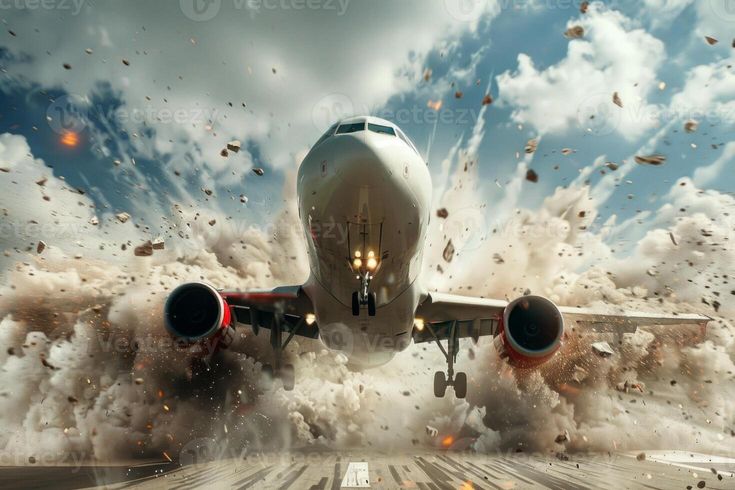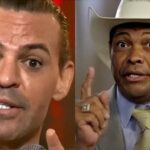On the morning of September 11, 2001, as the world watched in shock, a group of individuals found themselves at the epicenter of a tragedy that would forever alter the course of history. Among these people was a DJ, whose life would change dramatically as he became an unexpected witness to the horrors of the terrorist attacks. His personal experience during and after the events of that fateful day has been a story of survival, resilience, and the profound impact of tragedy on individuals.
This article explores the experiences of this DJ, offering insight into what it was like to be in the right place at the wrong time, and how he navigated the aftermath of such an event. Through the lens of his personal story, we gain a deeper understanding of the human side of the 9/11 tragedy, which is often overshadowed by political, historical, and broader geopolitical narratives.
The Scene at Ground Zero
The DJ, whose identity has been kept largely private to protect his personal life, was working on the morning of September 11, 2001, when he found himself just blocks away from Ground Zero in Lower Manhattan. Like many New Yorkers, he had no idea that the events unfolding that day would change the world forever.
When American Airlines Flight 11 struck the North Tower of the World Trade Center at 8:46 AM, the first sign of trouble came from the violent tremor that rocked the city. The DJ, who was busy preparing for a gig in a nearby club, heard the roar of the plane as it crashed into the building. At first, it seemed like a freak accident, a terrible mistake. But when United Airlines Flight 175 crashed into the South Tower 17 minutes later, the DJ began to realize that something far more sinister was at play.
As the towers burned and smoke poured into the streets, confusion turned into panic. People were running in every direction, fleeing the scene as news spread that New York City was under attack. The DJ, now in the midst of chaos, was unsure of what to do. The usual thrill of his life as a DJ, which involved crowds and music, was replaced by the visceral fear and adrenaline of being on the front lines of a national crisis. The noise from the towers and the confusion around him made it difficult to think clearly. But there was no time to hesitate—he had to make a decision.
In the Face of Chaos
Amid the swirling confusion, the DJ decided to remain in the area. He, like many others, was torn between the impulse to flee and the desire to understand the gravity of what was happening. With the Twin Towers visible in the distance, the DJ tried to stay calm, hoping to avoid the panic that was consuming the streets. As he watched people flee, he also saw first responders rushing in, undeterred by the danger they were facing. Their bravery left a lasting impression on him.
As the dust began to settle and the towers eventually collapsed—first the South Tower at 9:59 AM, and then the North Tower at 10:28 AM—the DJ realized the enormity of the disaster. Thousands of people had just perished in the most horrific attack the United States had ever seen. The devastation that followed was beyond anything he could have imagined, and the reality of the situation began to sink in.
What followed were hours of uncertainty, as New Yorkers and people around the world tried to make sense of the events. The DJ’s own experience was one of survival and shock. He had seen the destruction from close quarters, but had not been physically injured. Yet, like many others in the city that day, he would never be the same again.
The Aftermath and the Search for Meaning
In the days and weeks that followed, the DJ, along with millions of others, struggled to process what had occurred. New York City, a place that had always been a symbol of resilience and strength, now felt fragile and uncertain. For the DJ, there was no immediate return to normalcy. His music, which had once served as a form of escape and expression, now felt irrelevant in the face of such overwhelming loss and grief. Yet, like many survivors, he began to seek meaning in the chaos. He found comfort in community, in those around him who shared his experiences and fears. It was in this spirit of collective healing that he began to rebuild his life.
Despite the terror of that day, the DJ also found inspiration in the acts of heroism he witnessed. First responders, volunteers, and even ordinary citizens came together to help those in need, regardless of their own safety. The attacks on 9/11 may have been an attempt to divide and destroy, but the aftermath saw the strength of human solidarity and the power of love in the face of hate. These were the things that began to shape the DJ’s new perspective on life.
The Role of Music in Healing
In the years that followed 9/11, music became an outlet for the DJ to process the trauma of that day. As a DJ, music had always been a means of connection—both with his audience and with the world around him. But after the attacks, music took on a new role in his life. It was no longer just a profession or a hobby, but a form of therapy, a way to heal from the scars that had been left behind.
Music has long been recognized for its therapeutic qualities, and for this DJ, it became an important tool in the process of recovery. He found solace in composing mixes that reflected the sadness, anger, and hope he felt after the tragedy. His art became a form of expression for those emotions that words alone could not fully capture. Through the lens of music, he could communicate his experience to others who had also been affected by the attacks, even if they had not been physically present at Ground Zero.
Conclusion
The story of the DJ at Ground Zero is one of survival, resilience, and the power of human connection. It serves as a reminder that tragedy impacts everyone, not just those who are directly involved. While the world’s attention was focused on the political ramifications of the 9/11 attacks, it is important to remember the human stories that emerged from the rubble. The DJ’s journey through that tragic day and its aftermath illustrates the profound ways in which personal trauma can shape one’s life and career.
Through music, community, and the courage to face the pain, the DJ found a path forward. His story is a testament to the strength of the human spirit, the importance of finding meaning in times of hardship, and the healing power of art. Though the events of 9/11 will never be forgotten, it is stories like these that help us remember not only the darkness of that day but also the light that followed.



